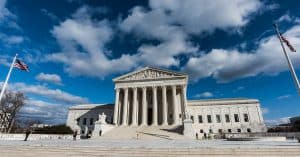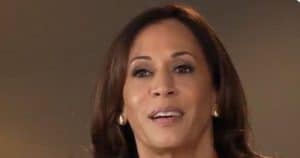Justice Barrett questions legal standing of Jan 6 prosecution
On April 16, the Supreme Court heard arguments in a case that may have repercussions for the prosecution of numerous defendants charged on January 6, including former President Donald Trump.
Joseph Fischer, a former police officer, is among those accused of obstructing an official proceeding pertaining to the violation of the Capitol, as The Epoch Times reported.
Initially dismissed by a district court judge, that allegation was subsequently overturned by a panel of the D.C. Circuit Court of Appeals. The Supreme Court will assess whether the reversal rendered by the appeals court was erroneous.
Questions from Barrett
The judge, Amy Coney Barrett, asked if the government could use the second clause, which says anyone who obstructs, influences, or impedes any official proceeding or attempts to do so, can be fined under this title or imprisoned for not more than twenty years, or both.
Specifically, Barrett questioned whether the government asserts they could try to show that his client "actually did try to interfere" with the certificates getting to the vice president's desk to be counted, rather than stopping the count of the certificates.
Jeffry Green, the lawyer for Fischer said no, that was not applicable, because “the statute prohibits operation on the grounds of specific evidence in shape or form.”
However, Justice Barrett stated that her hypothetical is evidence-related because it centered on certificates reaching the vice president, similar to how an opponent may attempt to prevent the introduction of evidence in a trial or criminal proceeding.
However, Green maintained that reguardless, his client's case does not fall within the scope of this clause, stating that it does not in fact involve impeding or prolonging.
“Congress is prohibiting the kinds of impairments that actually change documents that actually affect their integrity,” he said.
Questions for the Government
Later, when questioning Solicitor General Elizabeth Prelogar, Barrett proposed a “what if” scenari.
The justice inquired as to whether the government's stance on January 6, had the Capitol not been breached and the protestors been confined to the perimeter with the intention of obstructing progress by means of chanting "stop the steal," approaching too closely, and disregarding police requests to disperse, would have still been in violation of the statute.
According to the solicitor general, if a similar situation arose in which a joint session of Congress was adjourned due to a security risk, then if protesters had the intent evidence, it would probably be chargeable.
Furthermore, she provided instances such as when it was “absolutely clear that they were the ringleaders who had intended to obstruct and undertook the action with that specific intent and did so knowing it was wrongful” and when they were deliberately situated in unauthorized areas beyond the Capitol.




